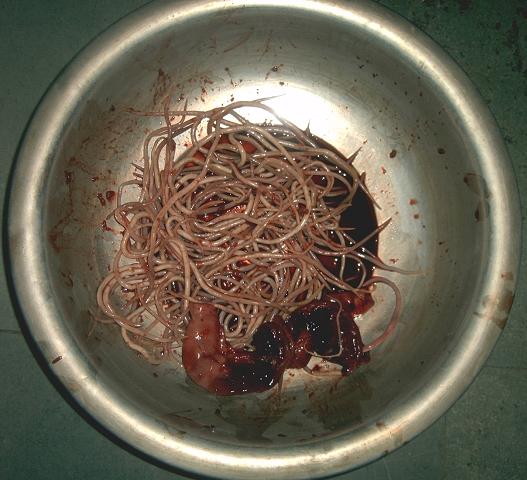Ascariasis Symptoms, Causes, Diagnosis and Treatment

What Is Ascariasis?
It is an infectious disease triggered by parasitic roundworms. These roundworms transmit by consuming contaminated water or food. They live in the small intestine for months and even years, where they lay eggs and multiply.
Children are more affected by the disease as compared to adults. In the long run, ascariasis can lead to learning problems, malnutrition and poor weight gain in children.
What Causes Ascariasis?
Drink or food contaminated by the eggs of roundworm serves as the basis to cause ascariasis. It is associated with poor sanitation and personal cleanliness. Ascariasis is more common in places where people use feces as fertilizers.
After being consume, these eggs tend to hatch within your small intestine, releasing larvae (immature roundworms). After some days, these larvae travel to your lungs by means of bloodstream. In addition to this, they then move up through its large airways, being retracted into your stomach, reaching back to your small intestine.
At this point, they mature. These adult roundworms can stay into your small intestine for around 12-24 months, where they multiply by laying eggs. You can also notice these worms passing in your stool.
What Are The Symptoms Of Ascariasis?
Around eighty five percent of the patients experience no symptoms at all, particularly if the amount of intestinal worms is less. As the amount of worms tends to increases, so do the symptoms. Few of which include:
- Wheezing.
- Vomiting worms.
- Stomach pain.
- Skin rash.
- Breathing difficulties.
- Low-grade fever.
- Cough.
- Worms exiting by means of mouth or nose.
- Bloody sputum.
- Passing worms in stool.
When Is The Right Time To Seek Medical Assistance?
Call up for an appointment with your doctor in case you have developed the above mentioned symptoms of ascariasis and have traveled to an area where the risk is high! Do not delay if:
- The symptoms turn worse.
- Are not responding to the treatment.
- You have developed new symptoms.
What Are The Potential Complications Of Ascarisiasis?
Several complications ascariasis can lead include:
- Perforation (hole) in the gut.
- Blockage of intestine.
- Biliary tract obstruction.
How Is Ascariasis Diagnosed?
Several tests that can help diagnose ascariasis are:
- Complete blood count.
- Abdominal X-ray.
- Stool ova.
- Parasites exam.
- Eosinophil count.
How Is Ascariasis Treated?
Its treatment involves medicines that kill these intestinal worms, for example mebendazole or albendazole. If vast amount of worms have managed to block your intestine, then the doctor can suggest endoscopy in order to remove them. Rarely, surgery is required.
Patients are advice by their doctors to visit them after the period of three months, wherein a stool sample is taken for examination. In case the existence of worm eggs is spotted, then the patient has to undergo the course of treatment again!
Prevention:
- Merely by improving hygiene and sanitation, one can minimize the risk of contracting ascariasis considerably.
- Drink boiled water.
- In case of traveling the high-risk places, carry your food and drinks.
By : Natural Health News




